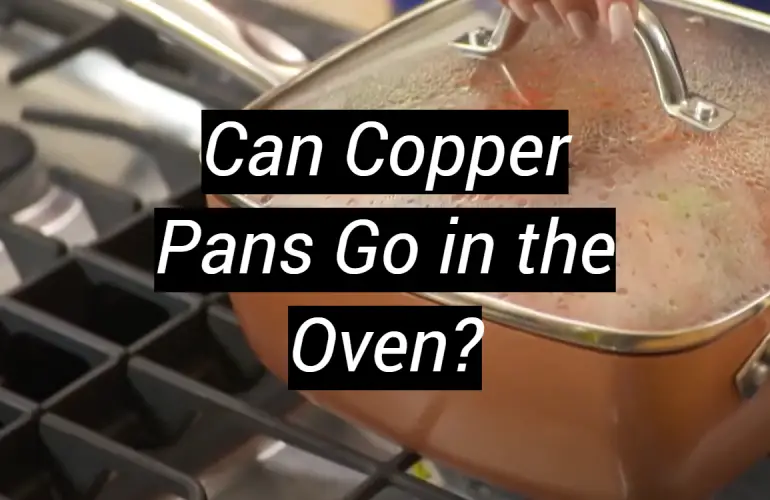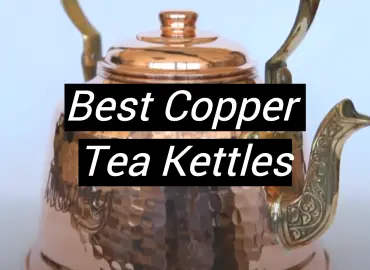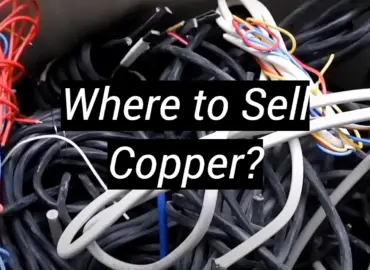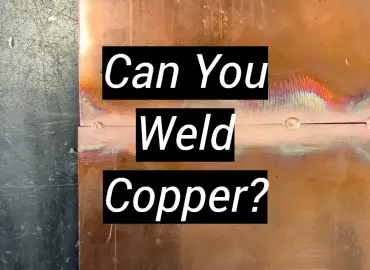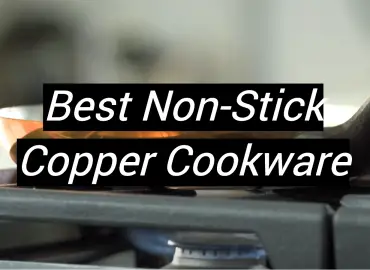Many people are wondering if it is safe to use copper pans in the oven. The answer to this question is a bit complicated. In general, it is not recommended to use copper pans in the oven. However, there are some cases where it is okay to do so. This blog post will discuss the pros and cons of using copper pans in the oven and provide some tips on how to do so safely.
Origin of Copper Pans
Copper pans have been around since ancient times, and were first used by the Egyptians as a way to cook their food. Copper is a very durable material and can withstand high temperatures, so it was ideal for cooking applications. Over time, copper pans became a staple in many different cultures across the world.
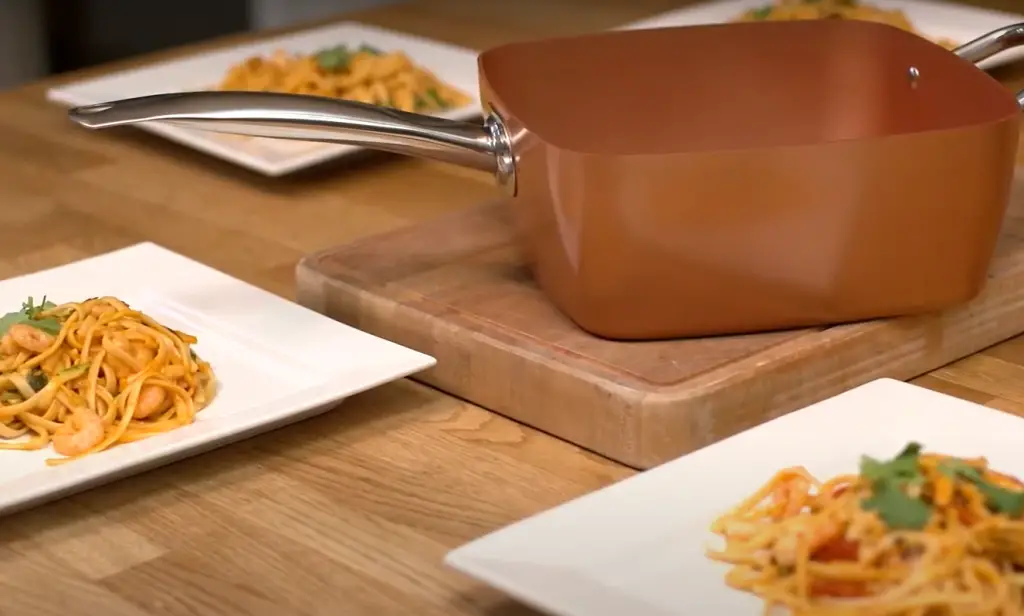
In Europe, copper became popular during the Renaissance period when chefs began using it to prepare meals. In addition to its durability and heat retention properties, copper also has an attractive sheen that gives dishes a beautiful presentation. This made it even more desirable for use in professional kitchens.
Copper pans are still widely used today due to their excellent cooking qualities and classic aesthetic appeal. They are perfect for searing meats and sautéing vegetables, as well as for making sauces and desserts. Many professional chefs still swear by their copper pans, claiming that the material brings out the best flavors in food.
No matter what type of cooking you do, a good quality copper pan will last a lifetime if properly cared for. It may be an investment upfront but it’s worth every penny to have a reliable kitchen companion that can bring out the best in your meals [1].
Benefits of Using Copper Pans
Copper pans offer many benefits when compared to other types of cookware materials. Here are some of the advantages:
- Copper is a great heat conductor, which allows food to cook evenly and quickly. This means that you get better-tasting meals with less energy expended.
- Copper pans are very durable and long-lasting, so you don’t have to replace them as often as other materials.
- They are nonstick and easy to clean, so there’s no need for scrubbing or extra effort when cleaning up after cooking.
- Many copper pans come with tight lids which lock in moisture while cooking, resulting in juicier meals.
- Copper utensils also look great in your kitchen, adding an elegant touch of sophistication to the decor.
Finally, copper is a naturally occurring material, so no preservatives or other harsh chemicals are included in the manufacturing process. This helps keep your food safe and healthy.
All these advantages make copper pans an attractive option for cooks who want to enjoy tasty meals without any hassle. With proper maintenance, they can last a lifetime and provide reliable performance every time you use them. So, if you’re looking for durable cookware that can add a touch of sophistication to your kitchen, consider upgrading to copper [2]!
Can Copper Pans be used in Ovens?
Copper pans can be safely used in ovens with some precautions. Copper is an excellent conductor of heat so it heats up quickly and evenly when placed in the oven. This makes them ideal for baking cakes, casseroles, and other dishes that require even heat distribution. However, due to their lightweight construction, copper pans are not as durable as other types of cookware and may bend or warp under intense temperatures.
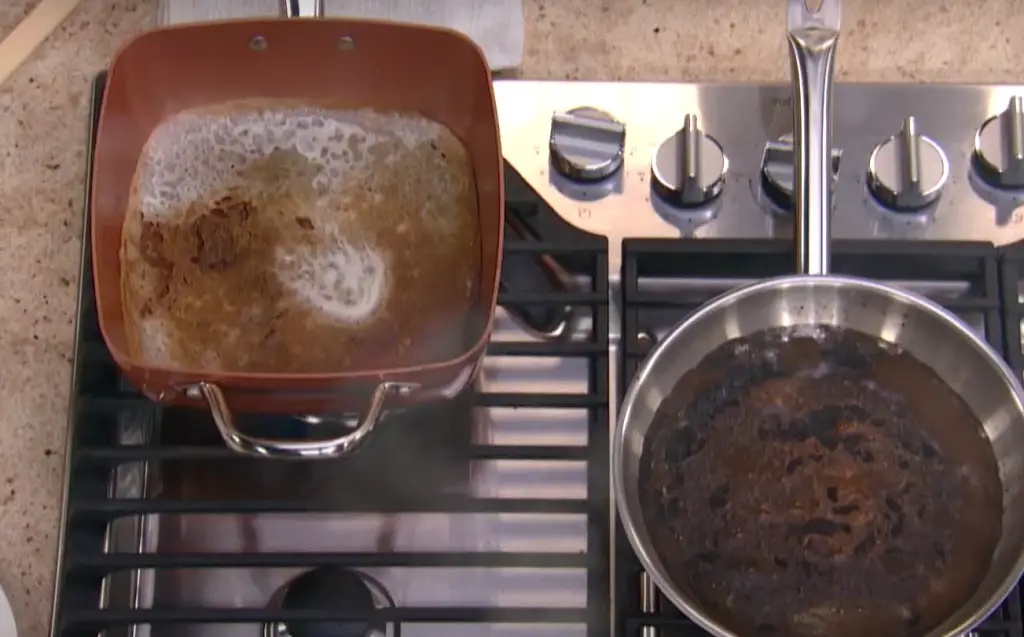
It is recommended to always use a trivet or hot pad when transferring a copper pan from the oven to avoid burns. Additionally, extreme temperature changes should be avoided by preheating your oven before cooking and allowing the pan to cool down slowly after removing it from the heat source to prevent warping or cracking. Finally, acidic ingredients such as tomatoes or citrus should never be cooked in copper pans to avoid discoloration and spoilage.
Overall, copper pans are a great choice for baking in the oven given their superior heat conduction abilities. However, it is important to take the necessary precautions to ensure your pan does not warp or crack under intense temperatures. With proper care and maintenance, you can enjoy delicious baked dishes for years to come with your trusty copper cookware [3]!
Precautions to Take When Cooking With Copper Pans in the Oven
Hot handles
One of the things to be aware of when cooking with copper pans in the oven is that they get extremely hot. This can cause severe burns if you accidentally touch the handle while it’s hot. To avoid this, always use an oven mitt or pot holder when removing a copper pan from the oven, and make sure to only grab the handles using both hands.
Cleaning
Copper cookware needs special care when cleaning as it’s softer than other materials, such as stainless steel. Avoid scouring pads and abrasive cleaners, as these will damage the surface over time. Instead, clean with a soft cloth or sponge and warm soapy water after each use. For more stubborn stains, try using a few drops of distilled white vinegar.
Seasoning
If your copper cookware is untreated or uncoated, it will need to be seasoned before use. This helps protect the surface from scratches and staining. To season a copper pan, apply several thin coats of vegetable oil to the inside and outside surfaces. Allow the oil to soak in for 10-15 minutes before wiping away any excess with a soft cloth or paper towel. Repeat this process 2-3 times over at least two days before using the pan to cook with.
Temperature
Copper has excellent heat conductivity, which is why it’s so popular as cookware material, but it also means that you must exercise caution when adjusting the oven temperature.
Any higher than that could cause damage to the pan and even produce toxic fumes.Storage
When not in use, store your copper cookware away from moisture and other harsh elements like salt or chlorine. These can corrode the surface over time, so it’s best to keep them stored in a cool, dry area when not in use. If possible, also invest in some plastic caps for your handles so they don’t get scratched or tarnished during storage. This will help maintain their shine for much longer!
Burning food
Copper is an excellent conductor of heat, but this can be both a blessing and a curse. While it will help your food achieve the desired consistency quickly, you must also pay attention to what’s happening in the oven and adjust the temperature accordingly.
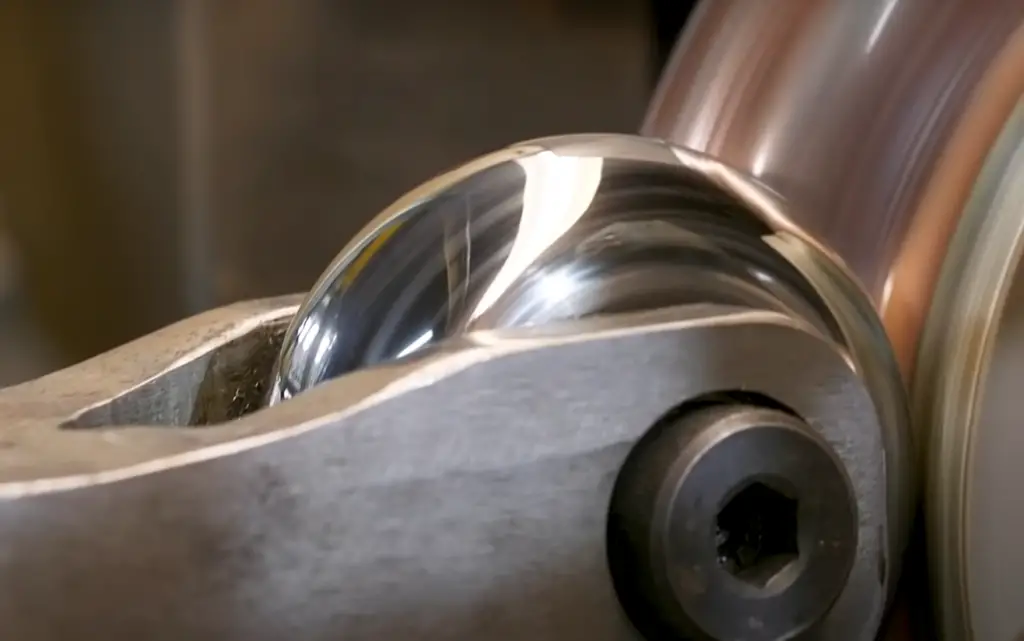
Otherwise, you may end up with burned or overcooked dishes. Keep a close eye on your food while it’s cooking and adjust the oven temperature as needed throughout the process.
Warping
Another thing to be aware of when cooking with copper pans in the oven is that they can warp over time due to exposure to high temperatures. To avoid this, never preheat an empty pan, and always place a sheet of aluminum foil between the pan and whatever you’re cooking. This will help disperse heat more evenly, which will protect your cookware from warping [4].
Do Copper Pans Have Any Limitations?
Induction Stovetops
Copper pans are not ideal for use on induction stovetops, as copper is a non-magnetic metal and cannot be used with this type of cooktop. If you want to use copper cookware on an induction stovetop, you will need to purchase a special adapter plate that can be fitted between the stovetop and the pan to conduct heat from the magnetic element to the non-magnetic copper.
Acidic foods
Copper is a reactive metal, which means it can react with other substances. It can react with some acidic foods such as tomato sauce, citrus fruits, and vinegar, releasing copper ions into the food. While these ions are not usually harmful in small doses, excessive consumption of foods cooked in copper pans containing large amounts of copper could lead to health problems.
Not Dishwasher-Safe
Although copper pans are relatively easy to clean with just a bit of hot soapy water, they are not usually dishwasher-safe. This is because the high temperatures and harsh detergents used in most dishwashers can cause damage to the delicate surface of the pan. When washing your copper pans by hand, be sure to use only mild soap and warm water, as harsh chemicals such as bleach could also damage the pan.
Requires Polishing
Copper pans require regular polishing to maintain their luster and shine. While some people may find the process of polishing copper cookware to be tedious, it is essential for maintaining the longevity and beauty of your pan. With proper care, a well-maintained copper pan can last for generations.
Expensive
Lastly, copper pans tend to be more expensive than other types of pans due to their superior heat conductivity and durability.
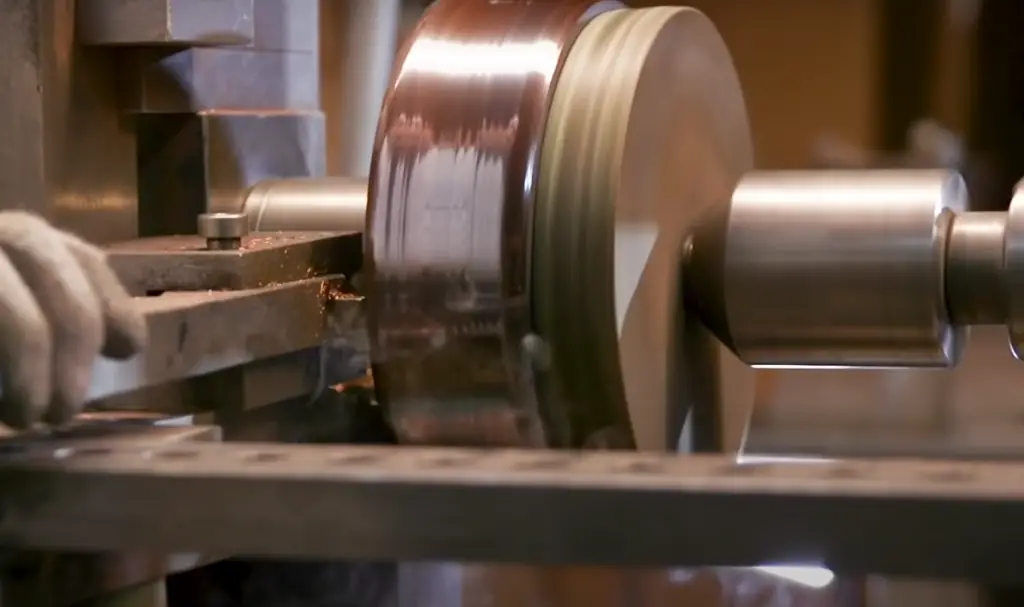
However, they are worth the investment if you plan on using them regularly and want your food to be cooked properly. Just make sure that you take good care of your copper pans so that they will last you a long time!
How to Care for Copper Cookware?
Hand-Wash Only
Copper cookware should be hand-washed only. Copper is a soft metal, so it can get scratched and dented easily when washed in the dishwasher. Use mild detergent with warm water to gently scrub the cookware clean. A sponge or non-abrasive cloth works best for cleaning. Rinse well and dry immediately after washing to avoid any spots caused by minerals in the water.
Polishing & Preventing Tarnish
To keep your copper cookware looking its best, regularly polish it with vinegar or lemon juice and salt mixture. Start by mixing 1/4 cup of salt with one cup of white vinegar or lemon juice until dissolved. Dampen a soft cloth with this solution and rub the cookware to remove any tarnish. Rinse and dry with a clean cloth afterward. To keep the copper from developing further tarnish, use a light coating of vegetable oil to create a barrier between the air and the metal.
Avoid Harsh Detergents
Harsh detergents are not to be used when cleaning copper cookware. These types of cleaners can strip the patina or protective coating from the metal, leaving it vulnerable to damage over time. Stick with mild soaps and warm water for best results.
Always wash copper pans before using them
Before using copper cookware for the first time, it’s important to wash and dry them. This will remove any remnants of oil or wax that may be used during the manufacturing process to protect the metal from corroding. It also gives you a chance to inspect the cookware for any potential damage and makes sure that it is clean before use.
Avoid using sharp objects
To keep your copper cookware in good condition, don’t use metal utensils such as spatulas or spoons when cooking with it.
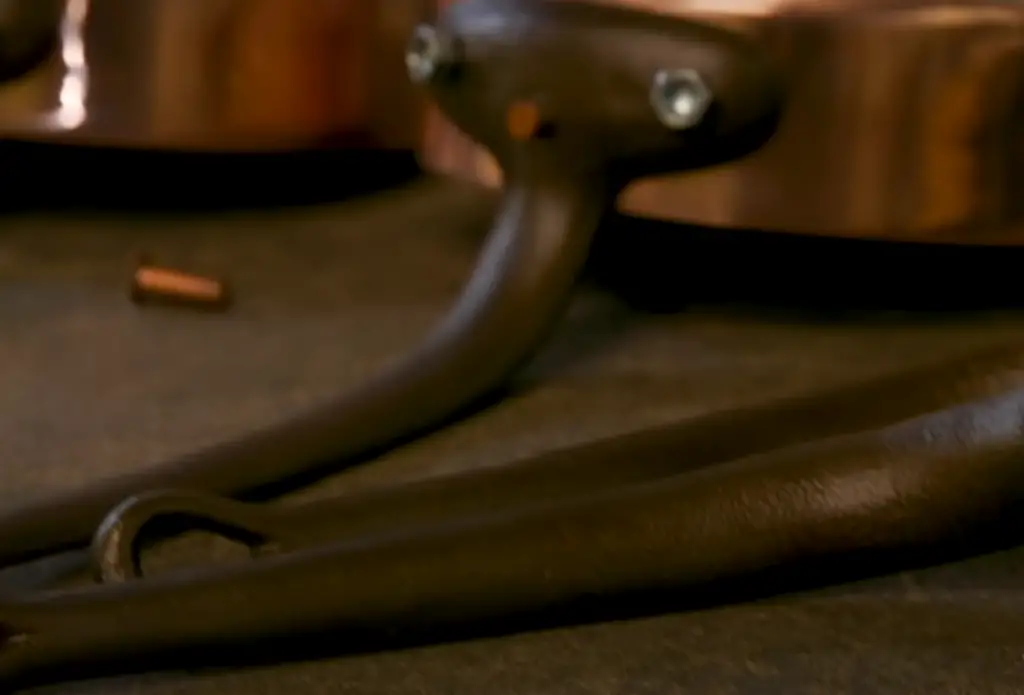
Opt instead for wooden or plastic implements that won’t scratch the delicate surface of the metal. Additionally, avoid using abrasive pads or brushes when cleaning copper cookware to prevent scratching and tarnish from occurring.
Don’t store foods in copper pans
It’s never a good idea to store food in copper cookware, as this can lead to metal leaching into the food.
When done using copper pans, make sure to wash and dry them immediately before storing them away.What can you cook in copper pans?
Copper pans are a great kitchen tool because they conduct heat so evenly and quickly. Copper pans can be used to cook almost any type of food, from vegetables to meats to desserts. Here is a list of some popular dishes that can be cooked in copper pans:
- Stir Fry: Cook up your favorite vegetables with a little oil and seasonings for an easy stir fry.
- Roasted Vegetables: Carrots, potatoes, Brussels sprouts, and more! Toss in some olive oil, salt, and pepper before roasting in the oven or on the stovetop.
- Pancakes & Waffles: Create the perfect batch of pancakes or waffles using copper cookware for even cooking.
- Fajitas: Whether you’re cooking chicken, beef, or veggies, copper pans are perfect for a fajita night.
- Steak & Seafood: Copper cookware is a great way to quickly and evenly sear steak or seafood.
- Soups & Stews: Simmer up your favorite soups and stews in copper pans for even heat distribution throughout the dish.
- Desserts: Bake cakes, muffins, brownies, and more to perfection using copper bakeware!
No matter what type of food you’re making, copper pans are sure to make it taste delicious! So get creative with your cooking and see what delicious dishes you can create with copper cookware.
FAQ
Is a copper pan oven safe?
Yes, a copper pan is oven safe. Copper pans have a stainless steel or tin lining that makes them suitable for use in the oven up to temperatures of 425°F (220°C). It is important to ensure that the handle of the copper pan is also rated oven-safe before using it in an oven. Additionally, it’s best to avoid sudden temperature changes when using copper cookware in the oven, so preheat your oven before placing the pan inside.
Can red copper pans go in the oven?
Yes, red copper pans are generally oven safe up to temperatures of 425°F (220°C). However, it is important to check the manufacturer’s instructions before using them in an oven. Additionally, it’s best to avoid sudden temperature changes when using copper cookware in the oven, so preheat your oven before placing the pan inside.
Are stainless steel pans oven safe?
Yes, stainless steel pans are usually oven safe up to temperatures of 500°F (260°C). It is important to check the manufacturer’s instructions before using them in an oven. Additionally, it’s best to avoid sudden temperature changes when using stainless steel cookware in the oven, so preheat your oven before placing the pan inside.
Are aluminum pans oven safe?
Yes, aluminum pans are typically oven safe up to temperatures of 375°F (190°C). It is important to check the instructions for any specific pan you’re using in an oven before doing so. Additionally, it’s best to avoid sudden temperature changes when using aluminum cookware in the oven, so preheat your oven before placing the pan inside.
Can I put glass bakeware in the oven?
Yes, glass bakeware can be used in the oven safe up to temperatures of 450°F (232°C). However, it is important to check the manufacturer’s instructions and make sure that your particular glass bakeware is rated for use in the oven. Additionally, it’s best to avoid sudden temperature changes when using glass bakeware in the oven, so preheat your oven before placing the pan inside.
How do you know if a pan is oven safe?
Most cookware will have the maximum temperature rating listed on its packaging. If the pan does not have a label or the packaging is missing, you can also check with the manufacturer for more information about your particular piece of cookware.
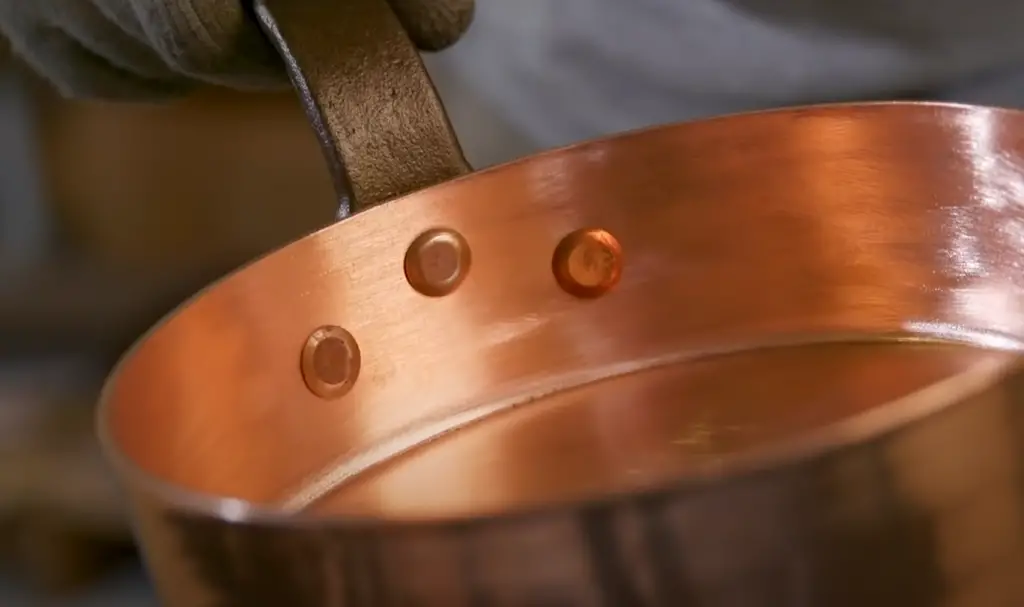
Additionally, it is important to make sure that any handles on pans are rated oven-safe before using them in an oven. Finally, it’s best to avoid sudden temperature changes when using any type of cookware in the oven, so preheat your oven before placing the pan inside.
What pans are not safe to use in the oven?
Plastic and wooden pans are not safe for use in the oven due to their potential melting point or flammability. Additionally, some non-stick coatings can break down under high temperatures, so it’s best to avoid using those in an oven. Finally, it is important to check the manufacturer’s instructions before using any cookware in an oven as certain materials may not be suitable for that type of use.
How do you bake with copper pans?
When baking with copper pans, it is important to read the manufacturer’s instructions before doing so. Generally, you can use a copper pan in an oven up to temperatures of 425°F (220°C). It is also important to make sure that the handle of the copper pan is also rated oven-safe before using it in an oven. Additionally, it’s best to avoid sudden temperature changes when using copper cookware in the oven, so preheat your oven before placing the pan inside. For more specific recipes or techniques for baking with copper pans, it is best to consult a cookbook or other source of trusted recipes.
What do you bake with copper pans?
You can bake a variety of dishes in copper pans, including cakes, bread, pastries, casseroles, and more. Copper is especially good for baking because it distributes heat evenly throughout the pan. Additionally, it helps to create a crispy outside and moist inside on baked goods like cakes or bread. For specific recipes or techniques for baking with copper pans, it is best to consult a cookbook or other source of trusted recipes.
What can you not cook in copper pans?
It is not recommended to cook acidic foods such as tomatoes or citrus in copper pans as the acidity could react with the metal and cause it to leach into your food. Additionally, it is not wise to cook high-fat foods like bacon in a copper pan as the fat can interact with the metal and create a potentially dangerous situation. Finally, it is best to avoid overcooking food in any type of pan, including copper pans.
Useful Video: Cooking in Copper: What Not To Cook
Conclusion
Cooking in copper pans is a great way to add flavor and nutrition to your meals. Not only are these pans non-reactive, they also heat up quickly, making them perfect for searing and browning food. Copper is an excellent conductor of heat, so you can expect even heating throughout the pan. Additionally, copper is naturally antimicrobial and antibacterial, making it a safer option than other types of cookware. Finally, copper pans are easy to clean and maintain over time with just some soap and water. All in all, copper cookware is worth considering if you’re looking for something special for your kitchen.
References:
- https://proware-kitchen.co.uk/cooking-copper-history/
- https://www.allorashop.com/news/copper-cookware-benefits/
- https://www.crumbkitchen.com/can-copper-pans-go-in-the-oven/
- https://thepan-handler.com/are-copper-pans-oven-safe/

